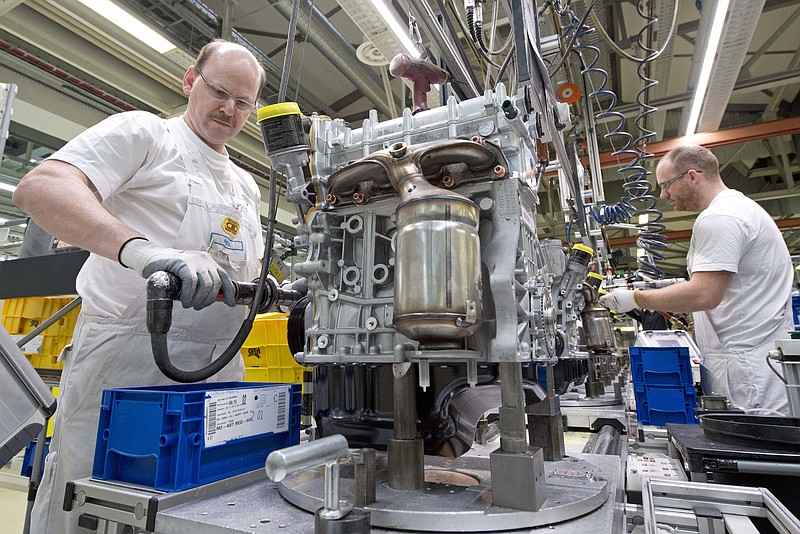Volkswagen's stunning admission that it sold diesel-powered cars that intentionally faked emissions testing results has left many of their owners - who thought they were buying fuel-efficient and environmentally friendly vehicles - angry and feeling betrayed.
The deception could prove a major threat to Volkswagen's reputation in the United States and could break the trust that the German automaker had cultivated with car owners over the years. It could also have lasting consequences for the future of diesel-powered technology championed by Volkswagen, which has been seeking to make a comeback in the United States.
Read more
* Volkswagen's reputation erodes as diesel emissions scandal widens* Sohn: What was Volkswagen thinking? * Cooper: VW brand on the line * VW unveils new Passat design for 2016 * VW rocked by emissions scandal as prosecutors come calling * For 7 years, VW software thwarted pollution regulations * VW scandal has TN officials fuming after giving millions in incentives * Volkswagen tells dealers to stop selling 2015 diesel cars * Cooper: VW's alleged emissions 'defeat device' disheartening* VW could be fined $18 billion for cheating on emission rules* VW stock crashes after admitting it rigged U.S. emission tests* EPA: VW intentionally violates clean air standards
On Friday, the Environmental Protection Agency announced that it would order Volkswagen to recall nearly 500,000 vehicles in the U.S. because they were equipped with software that allowed them to evade emissions standards for reducing smog during testing. No recall has been ordered yet, however, until Volkswagen can outline how it intends to fix the problem.
But whatever the technological solution, it will most likely mean reducing the performance, drivability or fuel economy of cars to meet emission goals.
In the meantime, car owners must reconcile what they thought they had bought with the revelation that their diesel cars emit from 10 to 40 times more pollutants than advertised.
"I feel totally ripped off," said John Decker, 55, a photographer from Sacramento, California, who owns a 2013 Jetta SportWagen with the diesel engine. "It just reeks of fraud and that they intentionally misled the buyers of their vehicles into thinking these were clean diesels, environmentally good cars, that were fun to drive."
More than any other automaker, Volkswagen had tried to win U.S. consumers back to diesel cars, and erase memories of unreliable, polluting cars that spewed clouds of smoke and had trouble starting in winter weather. Unlike Europe, where about half the passenger vehicles sold run on diesel, such cars account for fewer than 1 percent of new car sales in the United States. Most of those vehicles are sold by Volkswagen.
When new emissions standards were introduced in 2009, Volkswagen was the first major carmaker to offer vehicles that could meet the new rules. In August, diesel sales accounted for 23 percent of all cars sold by Volkswagen in the United States.
"It's a new level of cynicism in the auto industry," said Jack R. Nerad, executive market analyst at Kelley Blue Book. "We have seen honest mistakes and lapses of judgment before, and tragic things happening, but this strikes me as different. The intent from the beginning seemed to be to evade standard norms."
In growing numbers, automakers have been adding a diesel option in their lineup, marketing the vehicles as "clean diesels" that promise better fuel economy and faster acceleration.
Diesel cars are now offered by BMW, General Motors, Jeep, Land Rover and Mercedes-Benz. While Japanese makers have pursued electric-hybrid technology instead of diesel, Mazda said it would offer a diesel version of its Mazda 6 sedan at some point.
What makes the diesel revival possible are advances in systems that can reduce tailpipe emissions, which are generally higher for diesel than for gasoline engines. Those systems work by combining the fuel with an additive that reduces emissions of nitrogen oxide, one of diesel engines' main and most harmful byproducts.
"The fallout could be a black eye for a technology that had been making a lot of progress over the last few years," said Don Anair, deputy director in the clean vehicles program at the Union of Concerned Scientists.
